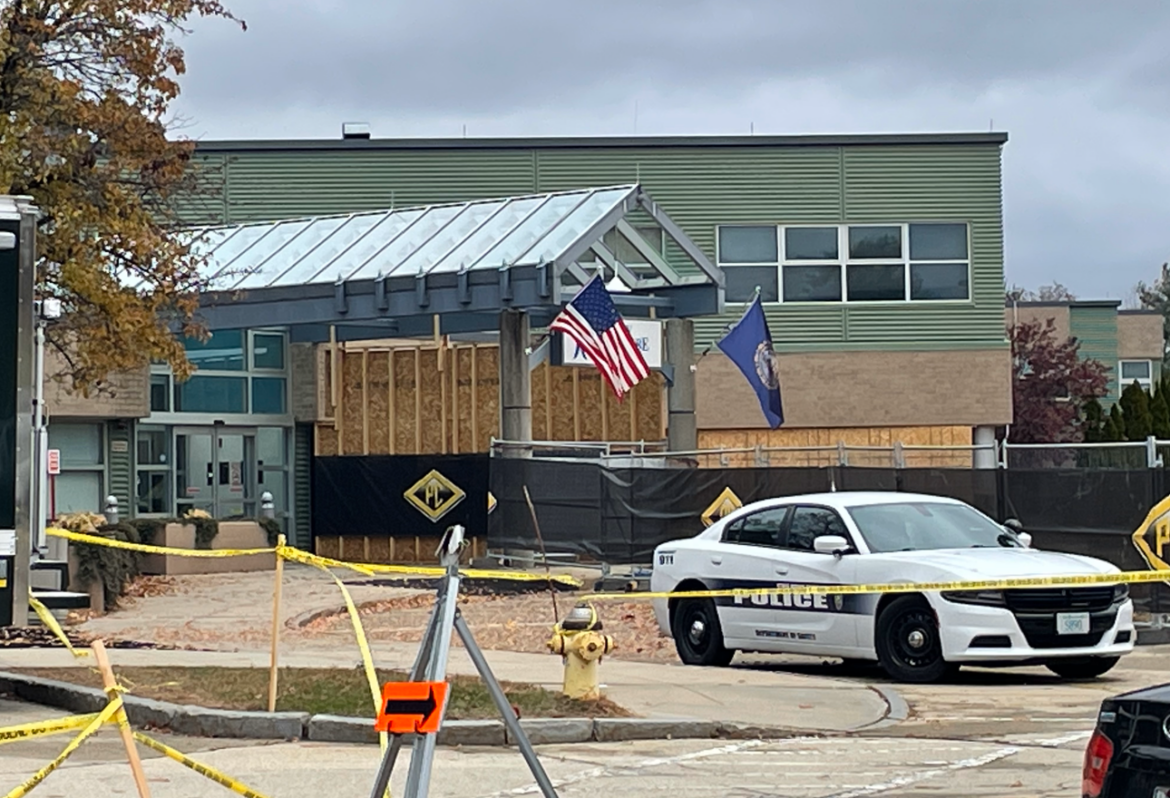By PAULA TRACY, InDepthNH.org
CONCORD – To close what supporters call a gun purchase loophole in the state related to mental health, Senate Democrats again have crafted a bill authorizing the state to report mental health data to a national firearms background check and allow for the processes for confiscation of firearms.
It also outlines a process for returning the weapons.
Opponents said this and other “red flag” laws do nothing to prevent tragedies that spawn such legislation, such as the death of New Hampshire Hospital Security Guard Bradley Haas.
New Hampshire is only one of three states that does not fully transfer mental health data to the federal registry.
Sponsored by state Sen. Debra Altschiller, D-Stratham, a public hearing on the bill was held in the Senate Judiciary Committee Thursday.
It would be known as “The Chief Bradley Haas Mental Health Firearms Reporting Act” in memory of Haas who was gunned down as an unarmed security guard at the New Hampshire Hospital by a man who had been previously held involuntarily at the facility, but was able to get a weapon because of the loophole, Altschiller said.
She said in 2016, the state Supreme Court ruled that a newly enacted law prohibiting the state from sending mental health records to the national gun database was unclear.
This is the exact same bill that was floated in 2024 but did not pass through the legislature, though former Gov. Chris Sununu voiced support if it got to his desk.
This year, the state has a new governor who is focused on safety and who on the campaign trail indicated a willingness to look at this particular loophole if it gets to her desk as well.
Altschiller said there is no change to the bill because the 2024 language was carefully written to comply with the law and had input from all parties.
She said the bill has three major parts:
It authorizes the judicial branch to be the single reporting entity to the FBI National Instant Criminal Background Check System.
It authorizes the court to report only those cases where people have been already adjudicated by the courts for precise procedural circumstances which include an involuntary mental health commitment; a finding of incompetent to stand trial or when a person has been found not guilty by reason of insanity.
She stressed this bill does not apply to people who are voluntarily committed or being treated for a temporary mental health trauma.
The information provided to the system would be a person’s name, Social Security number, birth date, and reason code for a person’s situation from the above three cases.
It would allow weapons to be surrendered, transferred to another person, or confiscated within 24 hours.
It also sets up a process to return those weapons, she said, and a hearing within 60 days with legal counsel provided to the individual.
Altschiller said there is a balance between Second Amendment rights and the Constitutionally enumerated natural rights to enjoy life.
“We were never meant to be all rights and no responsibility,” she said.
While these are uncomfortable conversations, she acknowledged, the job of the general court is to do the most good.
Altschiller said she has been labeled a “gun grabber” and that is not the case, noting she owns firearms.
“Gun violence is not abating. The numbers grow,” she said.
Altschiller noted the death of Haas and the report that showed the killer (who was killed by state police) lied on his application when he went to purchase the gun he used.
“We are not putting the information into the system and had we put that information in the system…we could have prevented a death,” Altschiller said.
Holly Stevens, director of public policy at the National Association of Mental Illness-NH said it is offering “cautious support” for the bill and see it as important in preventing suicides.
Simonida Thurber of Exeter supported the bill as it would close the gap and join 47 other states that “prioritize public safety.”
Elaine Kennedy said the senseless deaths have to end. She told the story of a family gunned down in Oklahoma City due to mental illness with access to weapons.
“Families want the health and support of the people they elect…families want help,” she said.
But several others opposed the bill.
Kimberly Morin of the Women’s Defense League of New Hampshire said the bill is “an emotional knee jerk reaction to a tragedy” which is aimed at gun control.
“There is nothing in this bill that would have stopped that tragedy or prevent suicide,” she said.
Morin said most criminals obtain their weapons illegally.
“What this bill does is point the finger at gun owners,” she said. Morin said suicide is trending down thankfully and that is due to people getting help.
She said the state needs more mental health facilities.
Kate Giddens, state director of Women for Gunrights, said the bill is detached from reality and an insult to Haas who was unarmed as a security guard.
Red flag laws, she said, fail because they are based on a false narrative that you can legislate everything.
She said bills like this bring the state one step closer to being Massachusetts and urged the committee to reject the bill.





